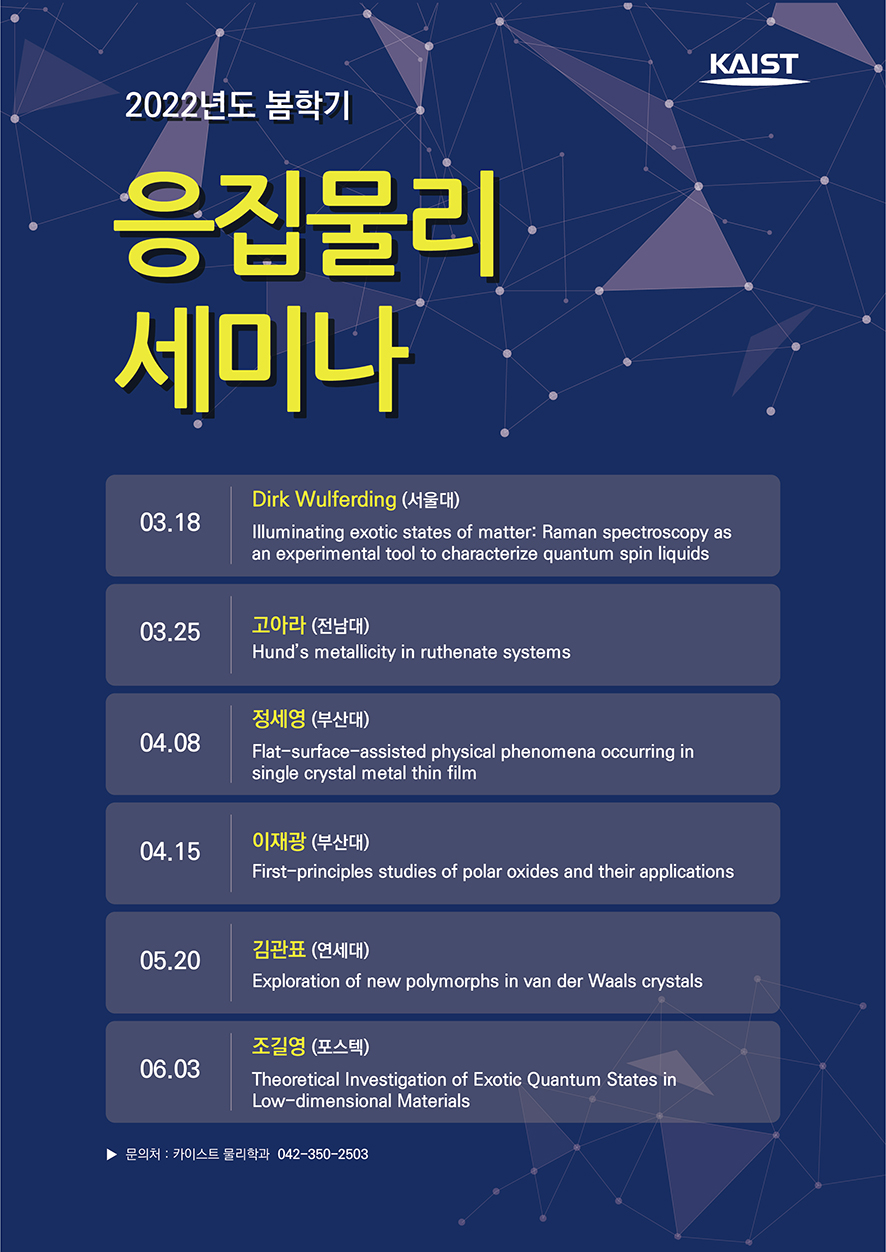(응집물리 세미나) Illuminating exotic states of matter: Raman spectroscopy as an experimental tool to characterize quantum spin liquids
2022.05.25 09:05
| 날짜 | 2022-03-18 11:00 |
|---|---|
| 연사 | |
| 장소 | Online seminar |
1. Date / Time
- March 18, 2022
- 11:00 AM (KST)
2. ZOOM (Only online)
- Link: https://kaist.zoom.us/j/87307858369?pwd=am5MUmZSaHZFS0pDRkxPTWloSDNYdz09
- PW: 079031
- PW: 079031
3. Speaker
- Dr. Dirk Wulferding (IBS-Center for Correlated Electron Systems, Seoul National University, Seoul)
4. Talk Title
- Illuminating exotic states of matter: Raman spectroscopy as an experimental tool to characterize quantum spin liquids
5. Abstract
- Quantum spin liquids are paradigmatic examples of long-range entangled quantum states that host fractionalized excitations and may realize non-abelian anyonic quantum statistics. These states can emerge in systems with magnetic correlations that are restricted in dimensionality and in coordination, and that are characterized by a small quantum spin number [1]. While this concept is strikingly simple, so far only a few materials exist that are considered as good candidates for quantum spin liquid ground states. A major challenge is that these states evade any classical long-range order, thereby lacking any clear experimental fingerprints. Adding to this challenge is that oftentimes only microscopically small samples can be synthesized, thus limiting possible experimental characterization probes.
Raman spectroscopy is a method sensitive to magnetic excitations in both triplet and singlet sector, and therefore sensitive to fractionalized spinon and Majorana fermionic excitations that emerge from quantum spin liquid ground states [2]. In my talk, I will review how we characterize the ground states of various Heisenberg antiferromagnets on the kagome lattice, and of Kitaev spin liquids using Raman spectroscopy at high magnetic fields. Our data suggest that in vicinity to quantum criticality Kitaev magnets may host non-abelian Majorana bound states [3].
[1] see, e.g., Savary, et al., Rep. Prog. Phys. 80, 016502 (2017).
[2] Wulferding, et al., JPCM 32, 043001 (2020).
[3] Wulferding, et al., Nat. Commun. 11, 1603 (2020)








